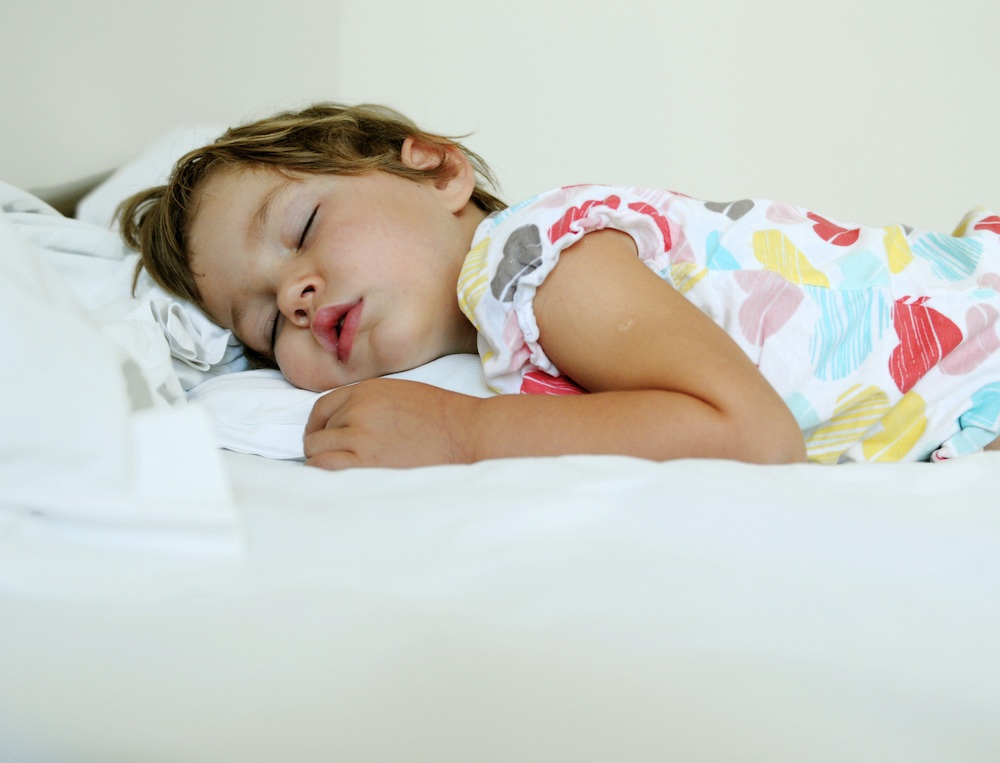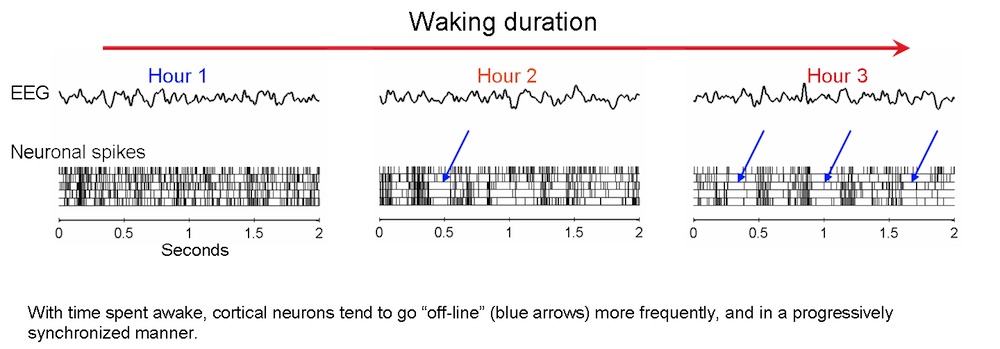Memory Lapses Linked to Brain Cells Napping

If you're staying up past your bedtime, you may not be as awake as you think you are. A new study of sleep-deprived rats finds that some of the animals' brain cells go into an "off" state even as the rats remain active and seemingly alert.
These neuronal "naps" come at a cost: Rats who experienced them became worse at reaching out to grab a sugar pellet with a single paw. The findings could explain some memory lapses that occur even when you don't feel tired, study researcher Chiara Cirelli, a psychiatrist at the University of Wisconsin, Madison School of Medicine and Public Health, said in a statement.
"Even before you feel fatigued, there are signs in the brain that you should stop certain activities that may require alertness," Cirelli said. "Specific groups of neurons may be falling asleep, with negative consequences on performance."
Cirelli and her colleagues reported their results today (April 27) in the journal Nature.
Nighttime for neurons
The importance of sleep on performance is well-known. One study, published in March 2011 in the journal Current Biology, found that taking a nap prior to memorizing information can improve how well you remember what you learned. And when people go without sleep long enough, they start to experience "microsleeps," or three to 15-second periods of sudden sleep — clearly a dangerous condition for drivers and others doing tasks requiring alertness, Cirelli and her co-authors wrote. But the new rat study suggests that brain drain may begin long before these microsleeps occur.
Cirelli and her colleagues implanted probes into the brains of 11 adult rats. The probes measured the electrical activity of neurons in the frontal cortex, the area of the brain that sits behind the forehead in humans. The researchers then deprived the rats of sleep for four hours, distracting them with new toys and videotaping them to be sure they stayed awake. Four hours of sleep deprivation isn't much for a rat, Cirelli told LiveScience.
Sign up for the Live Science daily newsletter now
Get the world’s most fascinating discoveries delivered straight to your inbox.
"It would probably be like one night or even less of deprivation for a human," she said.
As the four hours wore on, the researchers found, something strange began to happen in the rats' brains. Small segments of neurons began to go quiet, behaving as if they were in a sleeping instead of a wakeful brain. But the rest of the monitoring showed the brain to be awake — and the rats were open-eyed and active the whole time.
"This activity happened in few cells," Cirelli said. "For instance, out of 20 neurons we monitored in one experiment, 18 stayed awake. From the other two, there were signs of sleep — brief periods of activity alternating with periods of silence."
These periods of neuronal silence became more common the longer the rats stayed awake, increasing more than 57 percent from the first to the fourth hour of sleep deprivation.

The researchers tested an additional nine rats, this time inserting probes into the animals' parietal lobes, the area toward the top of the head. Again, they saw a pattern of increasingly sleepy neurons.
Sleep-deprived and struggling
To test whether the periods of neuronal silence affected the animals, the research team trained eight rats to do a task where they had to reach out for a pellet of sugar with one paw. They found that if a neuronal nap occurred in the frontal cortex 300 to 800 milliseconds before the rat tried the reaching task, the rats were 37.5 percent more likely to drop or miss the pellet when grabbing for it than if there was no off-period. In addition, the sleep-deprived rats got worse and worse at successfully grabbing the sugar the longer they stayed awake.
Cirelli said neuronal quiet periods and associated performance declines are likely to occur in humans.
"Based on what we know right now about sleep in rodents versus humans… we have little reason to doubt that something like this happens in humans," she said.
The connection between neuronal quiet periods and decreased performance is still "speculative," wrote Christopher Colwell, a sleep researcher at the University of California, Los Angeles, in an editorial accompanying the paper. (Colwell was not involved in the study.) Still, he wrote, the possible relationship should be tested further, perhaps by deliberately putting neurons to sleep and testing for consequences.
The findings open up new questions about the nature of sleep, Colwell wrote.
"Is it appropriate to think of single neurons as being asleep while the brain is awake?" he wrote. "If so, the physiological mechanisms that govern the 'on' and 'off' states will need a closer look."
Cirelli and her colleagues plan to test sleep-deprived rats on other tasks while monitoring them for neuron naps. Similar studies could be done on humans, Cirelli said, but only if they already had electrodes implanted in their brains for medical reasons. Some epilepsy patients do have temporary electrode implants, she said, which are used to pinpoint the source of their seizures. Some of these patients are also sleep-deprived in an effort to trigger and trace seizures, she said.
"These patients are undergoing sleep deprivation anyhow for clinical reasons, and therefore we could study them to find out if this phenomenon is happening in humans," she said.
In the meantime, Cirelli said, it pays to take sleep seriously.
"There are consequences of being sleep deprived even before there are obvious signs," she said.
You can follow LiveScience senior writer Stephanie Pappas on Twitter @sipappas. Follow LiveScience for the latest in science news and discoveries on Twitter @livescience and on Facebook.

Stephanie Pappas is a contributing writer for Live Science, covering topics ranging from geoscience to archaeology to the human brain and behavior. She was previously a senior writer for Live Science but is now a freelancer based in Denver, Colorado, and regularly contributes to Scientific American and The Monitor, the monthly magazine of the American Psychological Association. Stephanie received a bachelor's degree in psychology from the University of South Carolina and a graduate certificate in science communication from the University of California, Santa Cruz.










